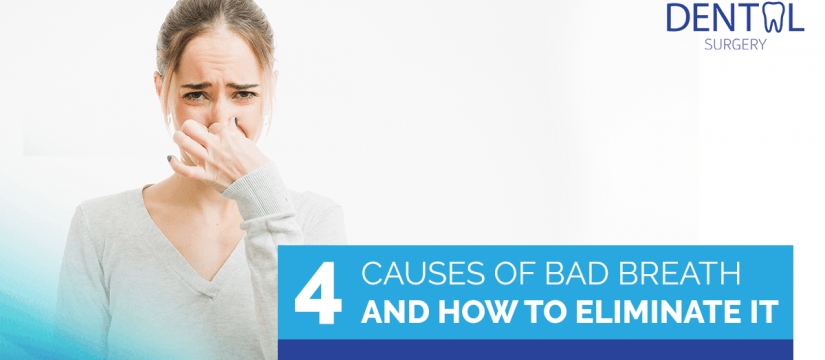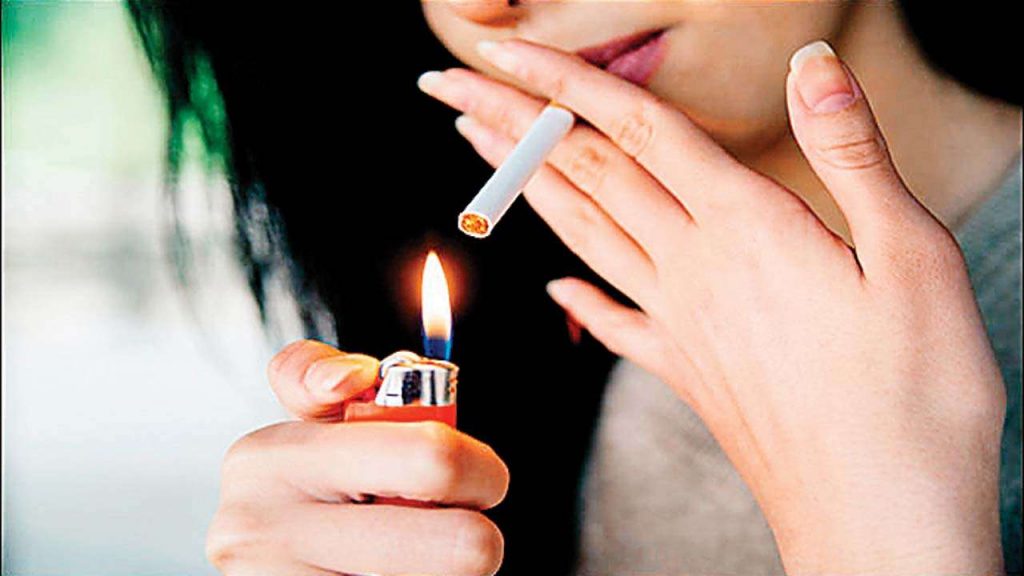
Bad breath, or Halitosis as it’s otherwise known in dental circles, is one of the most common dental symptoms.
It’s estimated to affect 1 in 4 people globally – that’s 25% of the entire world population!
Unfortunately, the plague of bad breath is hard to conceal, causing significant psychological distress to those who have it – often leading to anxiety, worry and embarrassment.
Although common, eliminating bad breath is a very simple fix.
Before we get to that, it’s important to understand the common causes that lead to a bad smelling mouth.
Bad oral hygiene
The most common cause of bad breath is simply poor oral hygiene.
Having a good dental hygiene regime is extremely important in order to eliminate bad breath. This includes brushing and flossing your teeth twice daily, and finishing off with a mouthwash.
When poor oral hygiene is exercised, food particles are not properly cleaned from your teeth. This often results in a film of bacteria called plaque that builds up when your teeth are not brushed on a regular basis.
As a result, an odor or ‘bad breath’ is produced.
Smoking
Bad breath as a result of smoking is a two-fold result.
On the one hand, smoking and the use of other tobacco products cause their own types of odors.
However, over the long-term, smoking decreases the immune system; which in turn, makes people far more susceptible to dental diseases such as gum disease, which can also cause bad breath.
Dry mouth
One of the least known reasons for the cause of bad breath, is through dry mouth.
The production of saliva is an extremely important aspect to oral health, as it naturally cleanses the mouth, while also keeping it from drying up.
When the mouth dries up through diseases such as xerostomia, odors can build up and create ‘bad breath’.
Types of food
Eating certain foods often can be a large contributor to bad breath.
When foods such as onions and garlic are digested, their breakdown products care carried in the blood to the lungs where they can affect your breath.
Certain diets can contribute to bad breath, such as fasting and many low-carb diets. These diets often trigger the breakdown of fats, producing chemicals called ketones, and these ketones can carry a strong smell affecting the breath.
How to treat bad breath
Thankfully, treating bad breath is relatively simple.
Because the most common cause of bad breath is the result of poor oral health, visiting a dentist for a professional clean twice a year is a good start.
It’s also important to maintain a good personal oral healthy regime:
- Brush at least twice a day using a soft-graded toothbrush and fluoride toothpaste
- The insides of your teeth can be cleaned by brushing vertically along each tooth
- After brushing, floss your teeth to remove any food particles in between teeth and gums
- Don’t forget to replace your toothbrush every couple of months, once the bristles start to fray
- Use a mouthwash to finish off
As a very common dental symptom, we treat many patients who come concerned about their bad breath, and is resolved efficiently with a good professional clean and checkup.
Call us today at Kooweerup Dental to organise a check and clean, and put your bad breath concerns to rest.


